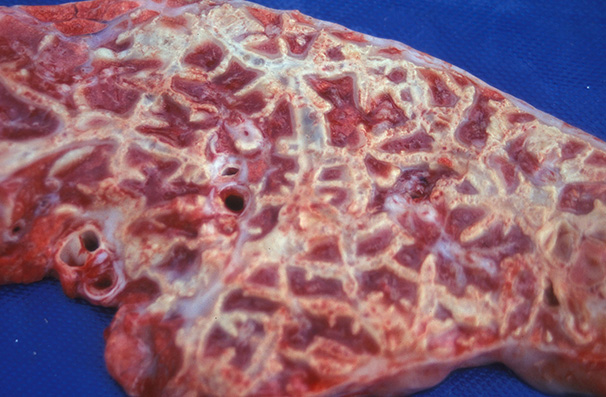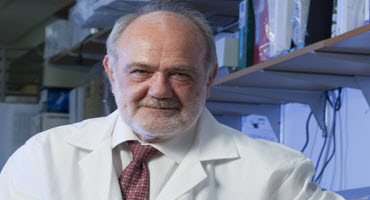This contagious lung disease can, in some cases, cause sudden death in livestock. Other symptoms of the disease include nasal discharge, dilation of the nostrils and laboured breathing.

A bovine lung infected with CBPP.
Photo: University of Pretoria
The disease hasn’t appeared in Canada or the U.S. since the late 1800s. It affects about 24 million African farmers each year, however, and causes US$60 million worth of livestock losses annually, according to VIDO.
Livestock production accounts for about 10 per cent of Kenya’s US$70 billion GDP and the country’s ag industry represents about 26 per cent of its GDP.
African researchers view this vaccine as a significant step to a better agricultural environment for producers and their livestock.
“This is a major milestone for farmers in Africa who have suffered major cattle losses as a result of CBPP-related deaths,” Eliud KIireger, director general of KARLO, said in a statement yesterday. “We are happy to be part of the team that worked tirelessly to develop the new vaccine.”
Since 2012, Canada’s federal government provided more than $3 million in funding to develop the vaccine.
Now that Kenya’s Veterinary Vaccines Production Institute has licensed the vaccine for commercial production, members of the Canadian research team reflected on the project.

Andrew Potter
“When you consider that we’ve had to set up the partnerships, develop the vaccine and test it, the time has gone very quickly,” Andrew Potter, CEO and director of InterVac, told Farms.com today. “I’m proud of the work that we’ve done and that we’ve helped create something that can help farmers in Africa and potentially back home, too.
“We encountered technological and scientific challenges along the way but those were overcome because of the quality of people we had working on the vaccine here and in Africa.”